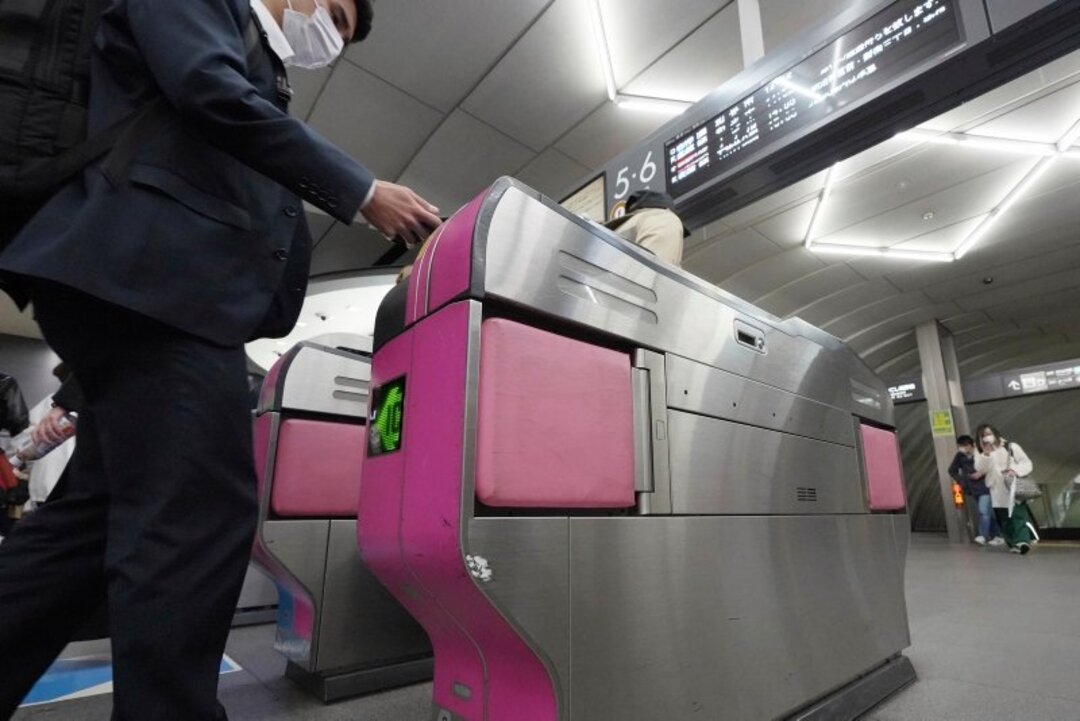-
Major Japan railway now powered only by solar and other renewable energy

The Anews reported, Tokyu Railways' trains running through Shibuya and other stations were switched to power generated only by solar and other renewable sources starting April 1.
According to the report, the carbon dioxide emissions of Tokyu's sprawling network of seven train lines and one tram service now stand at zero, with green energy being used at all its stations, including for vending machines for drinks, security camera screens and lighting.
Tokyu, which employs 3,855 people and connects Tokyo with nearby Yokohama, is the first railroad operator in Japan to have achieved that goal. It says the carbon dioxide reduction is equivalent to the annual average emissions of 56,000 Japanese households.
Nicholas Little, director of railway education at Michigan State University's Center for Railway Research and Education, commends Tokyu for promoting renewable energy but stressed the importance of boosting the bottom-line amount of that renewable energy.

He said: "I would stress the bigger impacts come from increasing electricity generation from renewable sources. The long-term battle is to increase production of renewable electricity and provide the transmission infrastructure to get it to the places of consumption."
The technology used by Tokyu's trains is among the most ecologically friendly options for railways. The other two options are batteries and hydrogen power.
World’s oldest person, Kane Tanaka, dies in Japan aged 119
And so is it just a publicity stunt, or is Tokyu moving in the right direction?
Ryo Takagi, a professor at Kogakuin University and specialist in electric railway systems, believes the answer isn't simple because how train technology evolves is complex and depends on many uncertain societal factors.
He said that in a nutshell, Tokyu's efforts are definitely not hurting and are probably better than doing nothing. They show the company is taking up the challenge of promoting clean energy.
Takagi said: "But I am not going out of my way to praise it as great."
Most of the time, Japanese robot can peel bananas cleanly
He said that bigger gains would come from switching from diesel trains in rural areas to hydrogen powered lines and from switching gas-guzzling cars to electric.
Tokyu paid an undisclosed amount to Tokyo Electric Power Co., the utility behind the 2011 Fukushima nuclear disaster, for certification vouching for its use of renewables, even as Japan continues to use coal and other fossil fuels.
"We don't see this as reaching our goal but just a start," said Assistant Manager Yoshimasa Kitano at Tokyu's headquarters, a few minutes' walk from the Scramble Crossing.
7.4 magnitude earthquake hits Japan’s northeast coast, killing four and injuring at least 100
Such steps are crucial for Japan, the world's sixth-biggest carbon emitter, to attain its goal of becoming carbon-neutral by 2050.
Only about 20% of Japan's electricity comes from renewable sources, according to the Institute for Sustainable Energy Policies, a Tokyo-based independent non-profit research organization.
That lags way behind New Zealand, for instance, where 84% of power used comes from renewable energy sources. New Zealand hopes to make that 100% by 2035.
The renewable sources driving Tokyu trains include hydropower, geothermal-power, wind power and solar power, according to Tokyo Electric Power Co., the utility that provides the electricity and tracks its energy sourcing.
Japanese robot servers allow people with disabilities to work in Tokyo cafe
Tokyu has more than 100 kilometers (64 miles) of railway tracks serving 2.2 million people a day, including commuting "salarymen" and "salarywomen" and schoolchildren in uniforms.
Since the nuclear disaster in Fukushima, when a tsunami set off by a massive earthquake sent three reactors into meltdowns, Japan has shut down most of its nuclear plants and ramped up use of coal-fired power plants.
The country aims to have 36%-38% of its energy come from renewable sources by 2030, while slashing overall energy use.
Japanese fighter jet disappears from radar and rescue in operation
Tokyu Railways has sought to publicize its effort with posters and YouTube clips.
Still, Ryuichi Yagi, who heads his own company that used to make neckties but has switched to wallets appeared surprised to learn he was riding on a "green train."
He said: "I had no idea."
Source: anews
You May Also Like
Popular Posts
Caricature
BENEFIT Sponsors BuildHer...
- April 23, 2025
BENEFIT, the Kingdom’s innovator and leading company in Fintech and electronic financial transactions service, has sponsored the BuildHer CityHack 2025 Hackathon, a two-day event spearheaded by the College of Engineering and Technology at the Royal University for Women (RUW).
Aimed at secondary school students, the event brought together a distinguished group of academic professionals and technology experts to mentor and inspire young participants.
More than 100 high school students from across the Kingdom of Bahrain took part in the hackathon, which featured an intensive programme of training workshops and hands-on sessions. These activities were tailored to enhance participants’ critical thinking, collaborative problem-solving, and team-building capabilities, while also encouraging the development of practical and sustainable solutions to contemporary challenges using modern technological tools.
BENEFIT’s Chief Executive Mr. Abdulwahed AlJanahi, commented: “Our support for this educational hackathon reflects our long-term strategic vision to nurture the talents of emerging national youth and empower the next generation of accomplished female leaders in technology. By fostering creativity and innovation, we aim to contribute meaningfully to Bahrain’s comprehensive development goals and align with the aspirations outlined in the Kingdom’s Vision 2030—an ambition in which BENEFIT plays a central role.”
Professor Riyadh Yousif Hamzah, President of the Royal University for Women, commented: “This initiative reflects our commitment to advancing women in STEM fields. We're cultivating a generation of creative, solution-driven female leaders who will drive national development. Our partnership with BENEFIT exemplifies the powerful synergy between academia and private sector in supporting educational innovation.”
Hanan Abdulla Hasan, Senior Manager, PR & Communication at BENEFIT, said: “We are honoured to collaborate with RUW in supporting this remarkable technology-focused event. It highlights our commitment to social responsibility, and our ongoing efforts to enhance the digital and innovation capabilities of young Bahraini women and foster their ability to harness technological tools in the service of a smarter, more sustainable future.”
For his part, Dr. Humam ElAgha, Acting Dean of the College of Engineering and Technology at the University, said: “BuildHer CityHack 2025 embodies our hands-on approach to education. By tackling real-world problems through creative thinking and sustainable solutions, we're preparing women to thrive in the knowledge economy – a cornerstone of the University's vision.”
opinion
Report
ads
Newsletter
Subscribe to our mailing list to get the new updates!






















